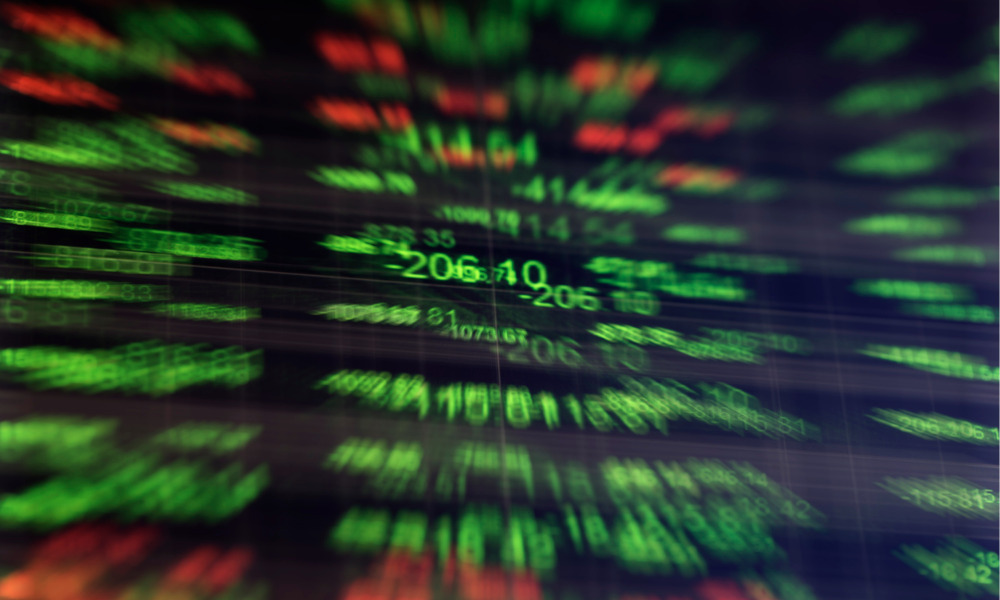Portfolio manager went ‘hunting’ on ‘Black Monday’ as market panic overrides rational pricing

Chad Larson got into the office early yesterday morning to analyse the pre-markets and “go hunting”. After Saudi Arabia had declared an oil price war via its row with Russia, the Calgary-based portfolio manager knew it was an opportune time to take advantage of irrational pricing.
While the severity of what subsequently played out was not a surprise, Larson admitted the velocity at which it unfolded was. Jitters at the coronavirus outbreak and years of markets climbing a wall of worry were compounded to damaging effect by the oil plunge. Fear and panic gripped the market. Larson, director of Mayert, Larson & Derlago Wealth Management Group at Canaccord Genuity Wealth Management, believes “Black Monday”, as it has been dubbed, was the trigger for the recession that everybody has waited so long for.
Canada took a battering, suffering its biggest drop since the 1987 crash. The S&P/TSX Composite Index plunged 10.30%., wiping out $218 billion in market value, while the loonie was also hit and government bond yields plunged to record lows. Other global markets also collapsed. The FTSE 100 ended down 8%, while the Dow Jones fell more than 2,000 points, its biggest ever fall in intraday trading.
Larson told WP that times like these separate the wolves from the sheep. “There are incredible opportunities when volatility spikes like this," he said. "Panic sets in faster than any kind of rational pricing.”
He joked that he put on his bad suit yesterday in order to do some dumpster diving with one eye looking up, making sure he avoided a falling knife or the sky falling in. So, what did the portfolio manager retrieve from the dump? Given the hammering the oil sector took, Larson targeted large cap names in that space, capitalising on people’s knee-jerk search for liquidity.
His team took positions with CNQ, Canadian Natural Resources and was able to “bottom feed” on Parex Resources, which, as an example, closed at $17 on Friday and opened yesterday at $11. At the time of interview, the stock had recovered to $14.50 before closing at $13.47. Larson also bought more JP Morgan and Bank of America, with US banks trading significantly down.
All moves are done knowing there are unseen potential systemic risks. Therefore, Larson also shorted volatility, highlighting a 20% swing in ETF Tvix, which is inverse related and two-times leveraged to short-term VIX. Being cautious but opportunistic is his mantra as the market flail around in the dark. Just don't confuse that for being “cautiously optimistic”. He said: “I think that's poppycock, frankly. It means they don't have an opinion; they don’t know what they are doing.”
Not that he’s making money right now, although he told WP he is losing far less than anyone without a disciplined approach. That has meant broad market diversification prep work, positioning in the yen, long bonds, precious metals and having prudent, elevated weightings of cash.
He adheres to the quote that “bull markets will make you money but bear markets can make you rich”. FOMO traders who had piled into late-cycle names raced for liquidity and left the door open for "bold" buyers.
“I don't believe that central banks stepping in and flooding the market with more liquidity is going to set the stage for another five years of a bull market,” he said. “This will be that lynchpin that causes that recession we've all been waiting for.”
Private equity and patient capital will be the winners to emerge from the carnage, said Larson. Businesses that suffer – like real estate, hospitality, tourism - and can’t maintain their balance sheets will eventually go looking for funding.
He said: “A private equity firm with patient, prudent capital will come in and likely not even take the bank out - they'll probably carve them up on the debt, probably not pay them back, but personally guarantee it. And they'll take the asset over for zero and fund it through this down period. On the next market cycle when things are going gangbusters, they'll monetize it for you. This gives them an infinite rate of return having bought it for zero and just stepped in to back the debt.”



